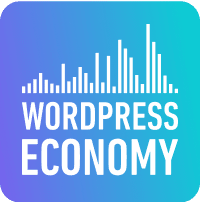
Building Your Brand Online with SEO
Yoast Founder and Chief Product Officer Joost de Valk discusses a new marketing stack to make your website more performant, more competitive, and optimized for user experience.
As the world continues to shift to a digital-first model, it’s become more important than ever for businesses to create engaging digital experiences for their brands.
At the same time, the ongoing expansion of the digital world has made it more difficult than ever for these businesses to be discovered by the very people who are searching for their products and services. It’s a crowded Internet out there, and building something that stands out is no easy task.
It can actually be downright frustrating. No matter the industry you’re in, you likely face a lot of competition when it comes to online visibility and the challenge of being discovered by people who may already be looking for you. Maybe you’ve invested in SEO strategy with little ROI, or you’ve tried other ways to promote your site, all with little impact.
There are a number of factors that go into building a fast, great-looking website that’s easy-to-use and easily discoverable. Historically, building these sites was an expensive or painstaking (or both) endeavor, particularly for businesses using complicated legacy software or, on the flip-side, over-simplified SaaS products.
Nevertheless, with ongoing innovation in open source technologies like WordPress, creating impressive, digital experiences that are fast-loading and SEO-rich has become a much more attainable and affordable goal.
Joost de Valk, Founder and Chief Product Officer for the wildly popular SEO optimization plugin Yoast, offered his take on this new digital paradigm in a breakout session at WP Engine Summit/2020, our all-virtual conference for developers and marketers held in June.
In the session, de Valk walks through the new digital landscape, where an increasing number of consumers prefer to do business online and where failure to show up in search results means losing out on a huge amount of potential customers. While this new reality comes with plenty of opportunities, de Valk explains that succeeding in it also requires a change in mindset.
“We’re still selling like we’re running a brick and mortar store,” he says, “and we’re still behaving a bit like that’s the truth we live in. We’re trying to do all these new things, but we’re still using the logic we knew from the old world.”
Now, de Valk explains, it’s more important than ever for developers and marketers to focus on a new marketing stack, one that will make websites more performant, competitive, and optimized for user experience. In doing so, he says, these sites will work in tandem with search engines like Google to better reach users.
“70% of all users start their product decisions with search,” de Valk says. “It’s probably even a lot higher now, and 50% of them never get beyond search.”
What that means, he adds, is that a huge percentage of potential customers aren’t making it to your website.
One way to remedy this issue, de Valk explains, is to reimagine the way we view Google, and to view it as a platform that is attempting to provide actionable answers and information to its users, not just search results.
“We need to stop thinking about Google as a search engine and start thinking about how we can help Google to give the solutions that we have to their users,” he says, stressing that slow-loading websites that are difficult to navigate are now as much of a barrier to search as poor or non-existent SEO strategies.
“Increasingly Google sees your website as friction because your website is slow, it’s full of ads, and models, and popups,” de Valk says. “Why would Google send visitors to your website if it doesn’t need to?”
Only by taking a fresh look at our marketing tech stack, and by diving into ways our websites can better feed information to search engines and the people using them, de Valk explains, can we also address this new challenge as a massive opportunity.
Throughout the session, de Valk explains the benefits of building websites with WordPress, leveraging schema.org specifically, and experimenting with other solutions such as AMP and PWA to create a smooth, fast-loading user experience on any device, that ranks higher on search engines.
Watch the full session for all of the details, and make sure and check out all of the other on-demand sessions from Summit/2020, available now.
Full list of Summit/2020 sessions, including videos, slides, and transcripts:
- Keynotes and Panels:
- Digital Breakthrough Conference: Carpe Diem! Seize the Opportunity to Break Through
- Keynotes Summit/2020: Performance and User Experience for the Web of Tomorrow
- Summit/2020 make|SHIFT Panel: How Brands & Agencies Are Using Creative Technology to Adapt to a New Reality and Protect the Brand Experience
- Agency Breakout:
- Brand Breakout
- Product Build Breakout:
- Product Optimize Breakout:











Thanks Abe for sharing insightful tips on your blog, Joost De Valk is an SEO guru, and his WordPress plugin Yoast has boosted millions of websites online.